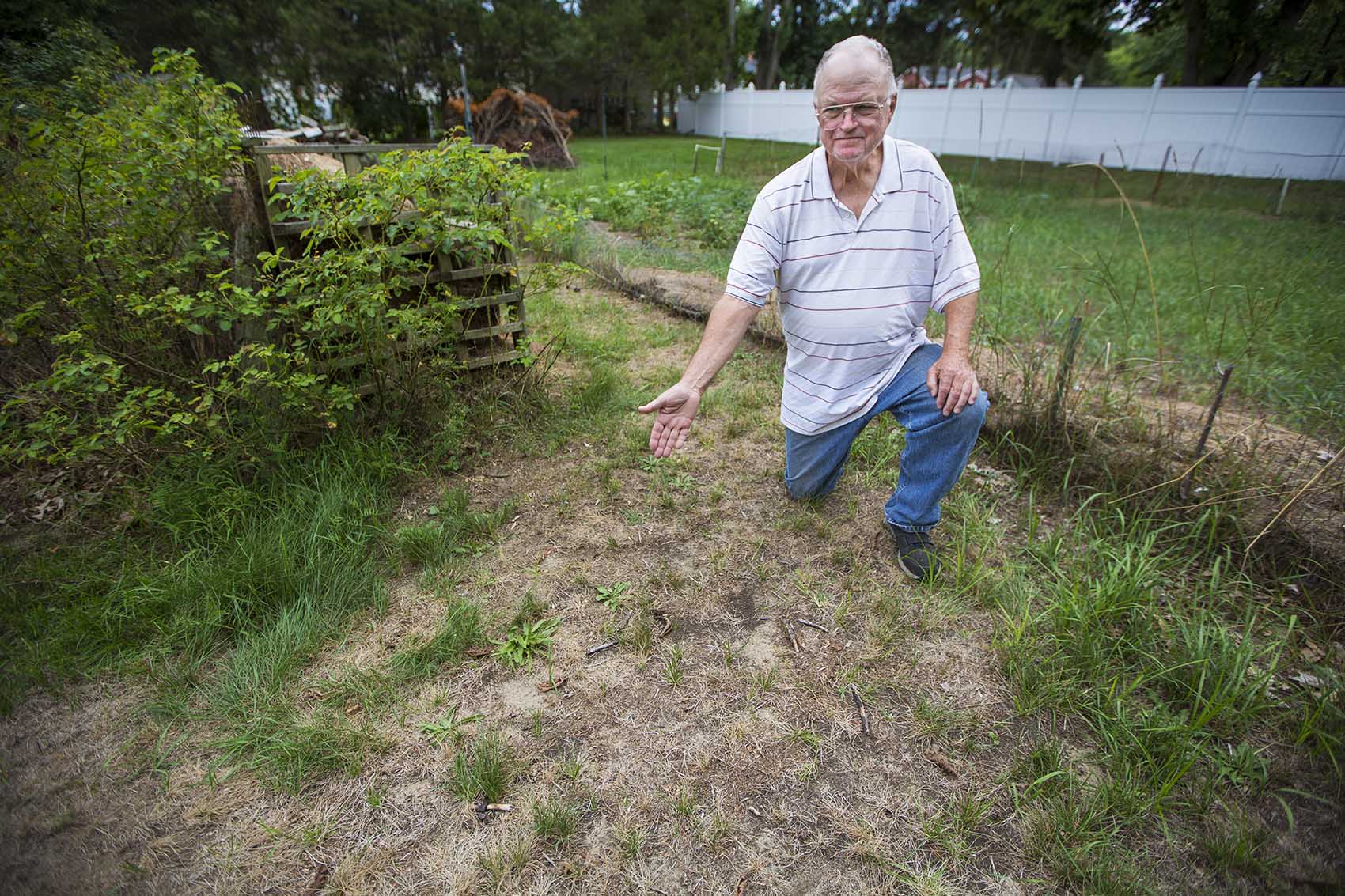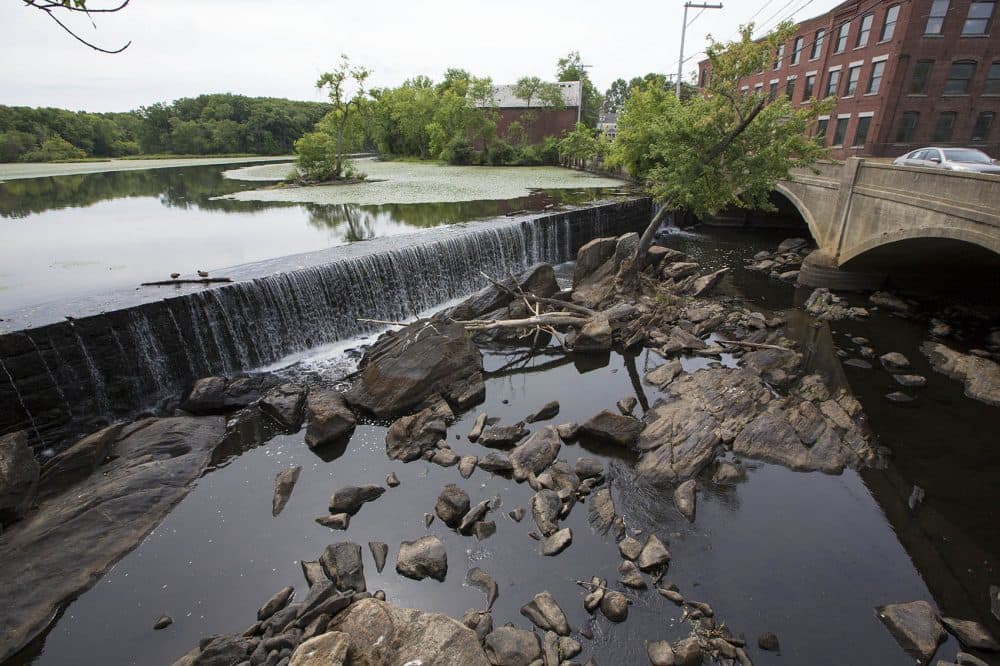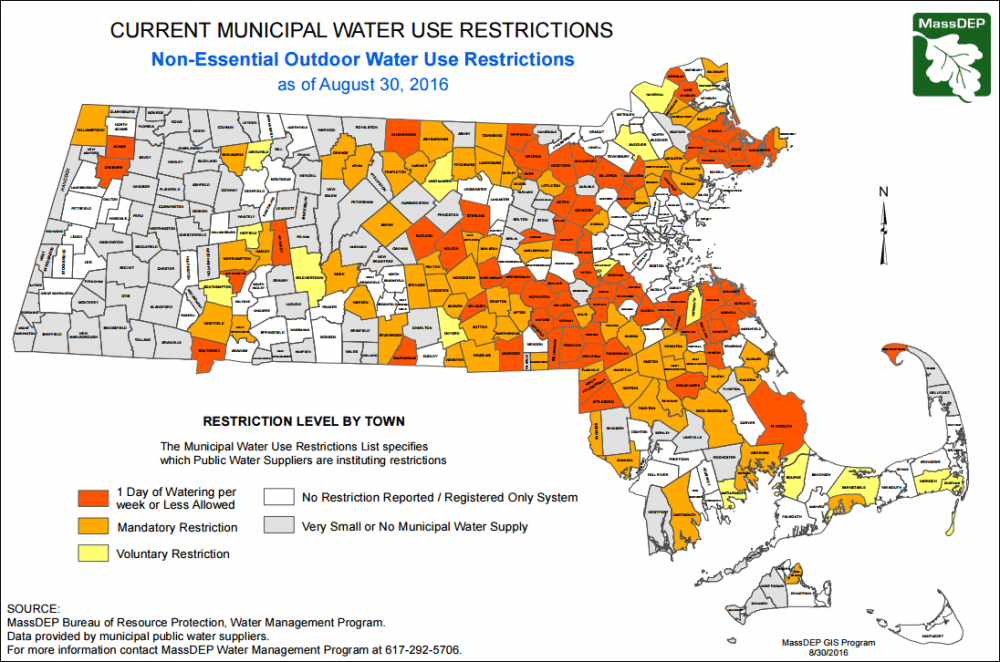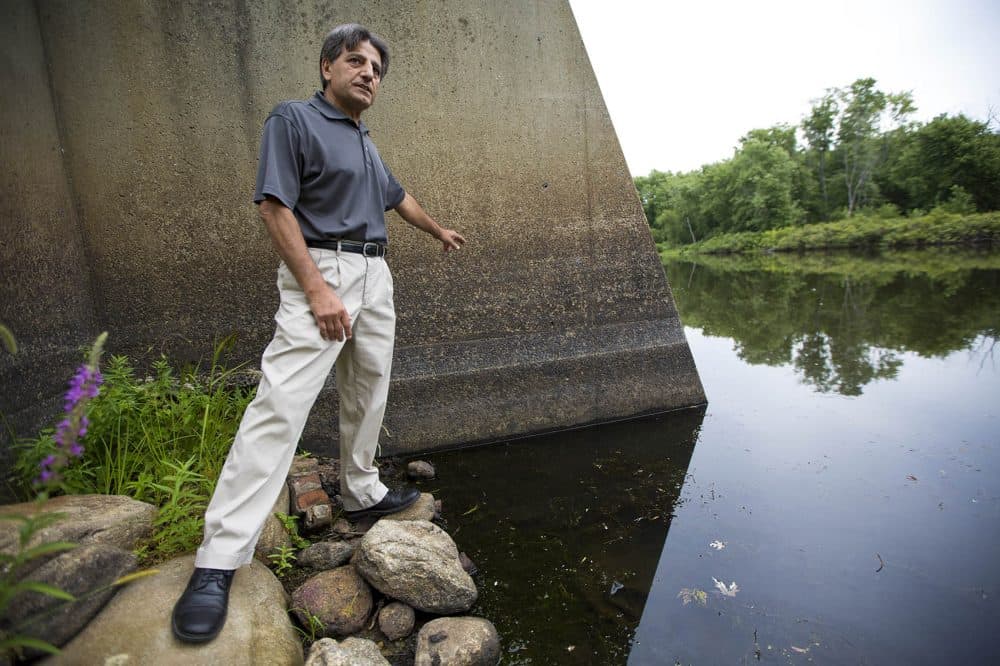Advertisement
Divided By Drought: Why Neighboring Towns Have Drastically Different Water Restrictions
Resume
There's a sprinkler dousing Marie Robinson's lush front lawn as the longtime Tewksbury resident chuckles and says, "I need to tell you how many people have stopped to tell us how nice our grass looks."
In Tewksbury, residents can still irrigate their lawn, water their flowers, and even fill up a kiddie pool if they like.
But less than half a mile away, just over the line into Billerica, it's a different story.
Tim Hinde has lived in his family's big farmhouse since 1950, and he says he can't recall ever seeing the land this parched.
Hinde leads the way across the lawn, the scorched grass crunching below his feet.
"I haven't gotten any peppers, or eggplants. Very few tomatoes," he says, pointing to what's left of his garden. "I intended to grow more than this but, just didn't happen."
Under Billerica's water ban, Hinde can water his vegetables by hand only, and the same goes for anyone keeping livestock. Any other outside water use in Billerica is prohibited.
So, why can Hinde's neighbors three houses down in Tewksbury continue watering their perennials?

It comes down to water sources and state permits.
"Unfortunately, we have more permits than we have time to review and update them in a timely manner," says Duane LeVangie, head of the state Department of Environmental Protection's water management program.
Those state permits he refers to are required by any entity — be it a town or a golf course — that uses over 100,000 gallons of water a day. The permits have built-in triggers indicating when to start curbing water use. For example, some restrictions are triggered when stream flow drops below a certain level.
Problem is, not all permits are up to date.
"They are 20-year permits and we're updating them as quickly as we can, but not every permit holder currently has the requirements," LeVangie says. "At this point, I'm guessing about 60 percent of our permits have a requirement telling them that they should be implementing restrictions right now."
And that includes Billerica. The town's permit was updated in 2010 and allows it to pull water directly from the Concord River, which has been hit especially hard during this dry season.
Just next door in Tewksbury, however, the town pulls its water from the Merrimack River. Tewksbury's permit is not scheduled to be reviewed for at least another two years.

In the meantime, LeVangie says plenty of communities this summer are enacting self-imposed rules. And those all add up to the highest number of statewide water use restrictions he's ever seen.
"We have about 110 permits that require it now and we have 170 systems doing restrictions," he says, "so people are doing it without us telling them they have to, so it is far more significant than we've seen in the past."
Standing on the banks of the slow-moving Concord River, Abdul Alkhatib, head of Billerica's DPW, points to a water stain on a nearby cement slab. The mark indicates the river's normal height.
"You can see how low it is, right now you probably have about an average of a 3 feet drop from a normal level," Alkhatib says.
And not only is the water low, but it's also nearly stagnant, which presents another set of problems when it comes to treatment. Alkhatib says higher levels of manganese and iron in the water make for a more complicated process and the town is now treating the water as though it were from a lake, instead of a river.

Alkhatib says this summer's drought has raised important questions.
"It makes you think about, and start to plan," he says. "What if there's not much rain the next month or two, what do you do?''
Despite the town-by-town variations, officials at the state level are asking all residents to consider conserving water.
Dan Sieger, the assistant secretary of environment at the state's Executive Office of Energy and Environment, says that while a particular town may not be enforcing water use restrictions, it's everyone's responsibility to conserve.
"I think when it comes to this level of lack of precipitation around the state, it's time for everybody to sort of do their part and cut down on their water use at a personal level," Sieger says.
When it comes to the drought, the town line between neighboring Billerica and Tewksbury may not be so stark for much longer. Tewksbury officials say they're considering enacting a voluntary water restriction.
This segment aired on September 2, 2016.
